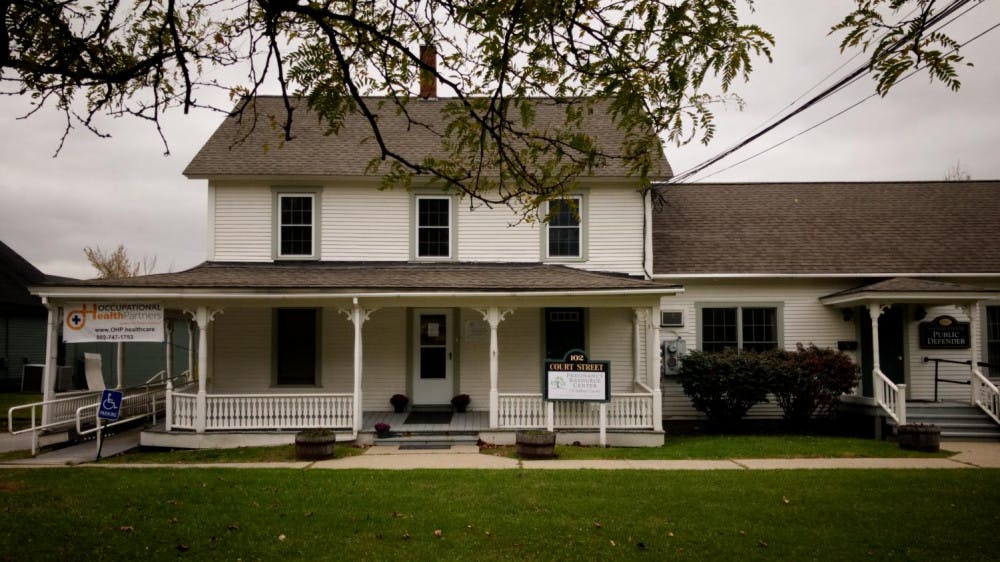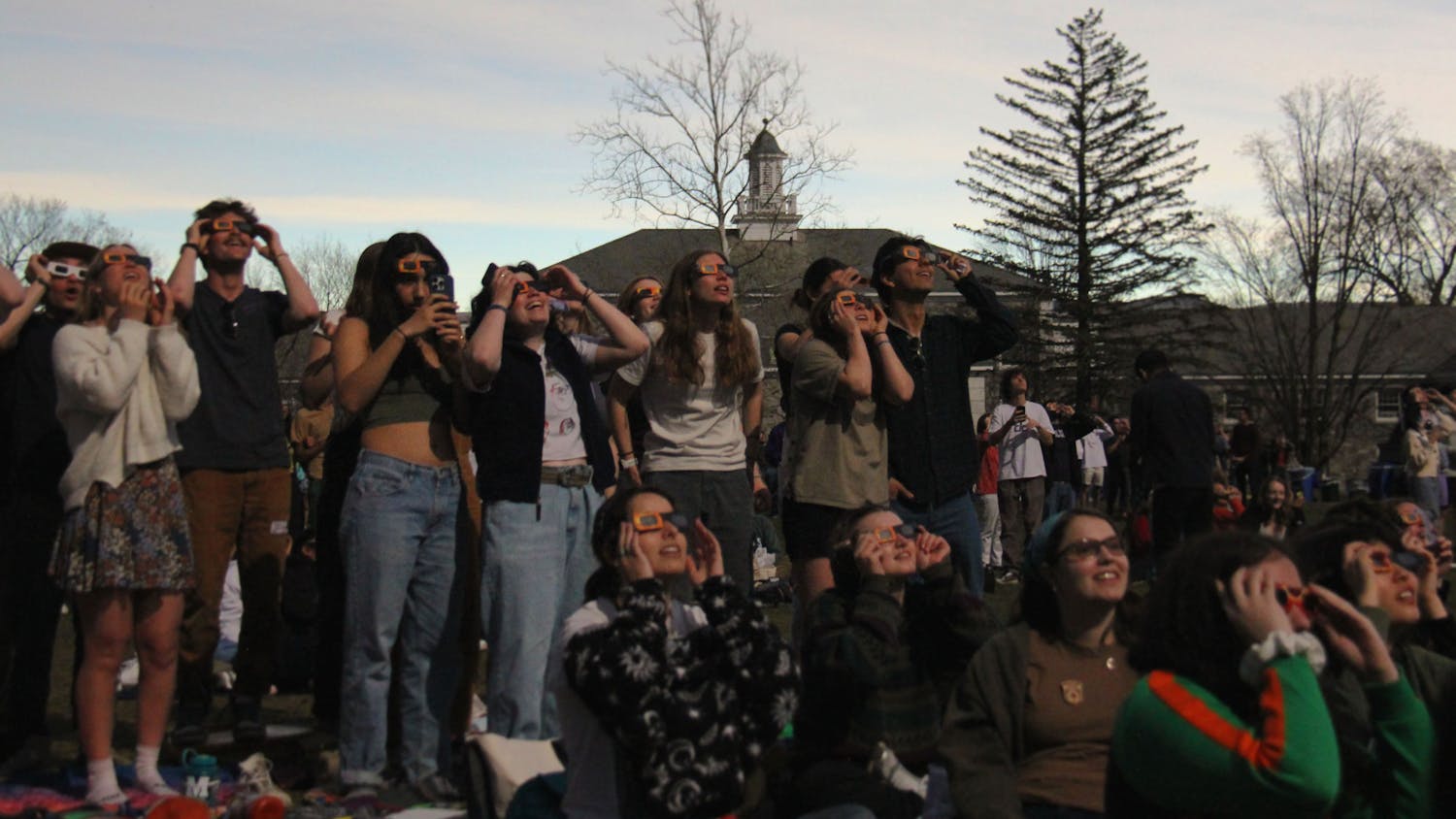A group of students are circulating a petition to ban a local Crisis Pregnancy Center (CPC) from advertising and participating in on-campus activities.
CPCs, also known as Pregnancy Resource Centers, are nonprofit organizations that generally provide peer counseling related to pregnancy and childbirth, as well as financial resources and adoption referrals. The mission of these organizations is to advise women with unintended pregnancies against having an abortion, and offer adoption or parenting as alternative options. Historically, research has shown that 80 percent of CPCs provide misleading or factually inaccurate information regarding the physical and mental effects of abortions. Currently, there are an estimated 2,300 to 3,500 CPCs actively operating in the United States.
The local Pregnancy Resource Center of Addison County is located downtown at 102 Court Street, near Middlebury Union High School. Their mission statement is “Empowering Individuals to Make Informed Choices.” They operate without state or federal funding. In the past two years, the center has attended and advertised their services at the college’s fall student activities fair. Students at the college have also previously worked at or with the local CPC chapter, serving as on-campus representatives.
Toria Isquith ’19 and Kelsie Hoppes '18.5 started the petition to ban the CPC. Several of the students learned about CPCs in Gender, Sexuality, & Feminist Studies Professor Carly Thomsen’s Politics of Reproduction class last year. Isquith was ispired to take action when she saw the CPC’s booth at the activities fair .
“The booth had information about STDs, free flip flops, and business cards, but the CPC did not bring any of their information about abortion to campus,” Isquith said. “This struck me and other students as an effort by the CPC to misrepresent themselves on campus. I followed up with many of these students, who in turn spread the word to their friends and peers, and soon we had a group suggesting ideas for how to get the Middlebury CPC off our campus.”
“Our goal is to protect our peers from misinformation, bias and fear mongering,” Isquith added. “CPCs pose a tangible threat to students’ reproductive autonomy, and our goal is to protect this autonomy while also spreading awareness about CPCs and starting a larger conversation about them in Middlebury.”
[pullquote speaker="Toria Isquith '19" photo="" align="center" background="on" border="all" shadow="on"]This struck me and other students as an effort by the CPC to misrepresent themselves on campus.[/pullquote]
Several college staff and faculty have signed the petition, including the Director of Chellis House Karin Hanta, who read over the petition and offered edits.
Thomsen led the only successful movement to ban CPCs from advertising on a college campus when she attended the University of California, Santa Barbara.
“In my class, we read academic articles about CPCs and watch related documentary films,” Thomsen said. “These texts provide useful tools for discussing many feminist studies concerns far beyond the topic of CPCs, including, for example, the state’s responsibility to counter misinformation deliberately circulated by activists.”
“These scholarly texts do not, of course, provide a simple road map for participating in political activism or for conducting their own research,” Thomsen continued. “This is what we are witnessing at Middlebury. Students are taking information learned in their GSFS courses and applying it in the world. This is happening in the form of circulating petitions, creating websites, writing op-eds and marching in the Homecoming parade.”
Joanie Praamsma, the director of the Pregnancy Resource Center, defended the center.
“The claim that we provide inaccurate information to our clients is categorically false,” Praamsma wrote in an email to The Campus. “Through our free services, our center is helping to build healthy and stable families.”
Praamsma described the center’s commitment to Christian faith and this influence on their health services.
“We make no secret of the fact that our center’s work is motivated by a Christian commitment to the dignity of every life and the preciousness of the family,” Praamsma said. “It is called faith, and it is a faith shared by millions of Americans.”
[pullquote speaker="Joanie Praamsma" photo="" align="center" background="on" border="all" shadow="on"]...our center’s work is motivated by a Christian commitment to the dignity of every life and the preciousness of the family[/pullquote]
Isquith criticized the CPC in an op-ed published in The Campus in November 2017. She has also worked with former Middlebury students to create an interactive map providing information on abortion services in Vermont. For Isquith, the petition is the first step in raising awareness of the issue.
“Beyond this, I’m hoping that students, especially younger, will continue to partake in reproductive justice activism at Middlebury and in the broader community,” Isquith said. “I would love to collaborate with the Middlebury Union High School to educate students about the CPC, especially since they are located so close to the high school and pose a threat to younger students. But I am trying to tackle one project at a time.”
“That students are transforming academic material learned in their GSFS classes into activism and new research reflects the spirit of GSFS as well as Middlebury’s mission to create opportunities for students to ‘learn to engage the world,” Thomsen said.
Correction: an earlier version of this article mistakenly stated that faculty had helped circulate the petition, and misidentified the students who were involved in the effort.




